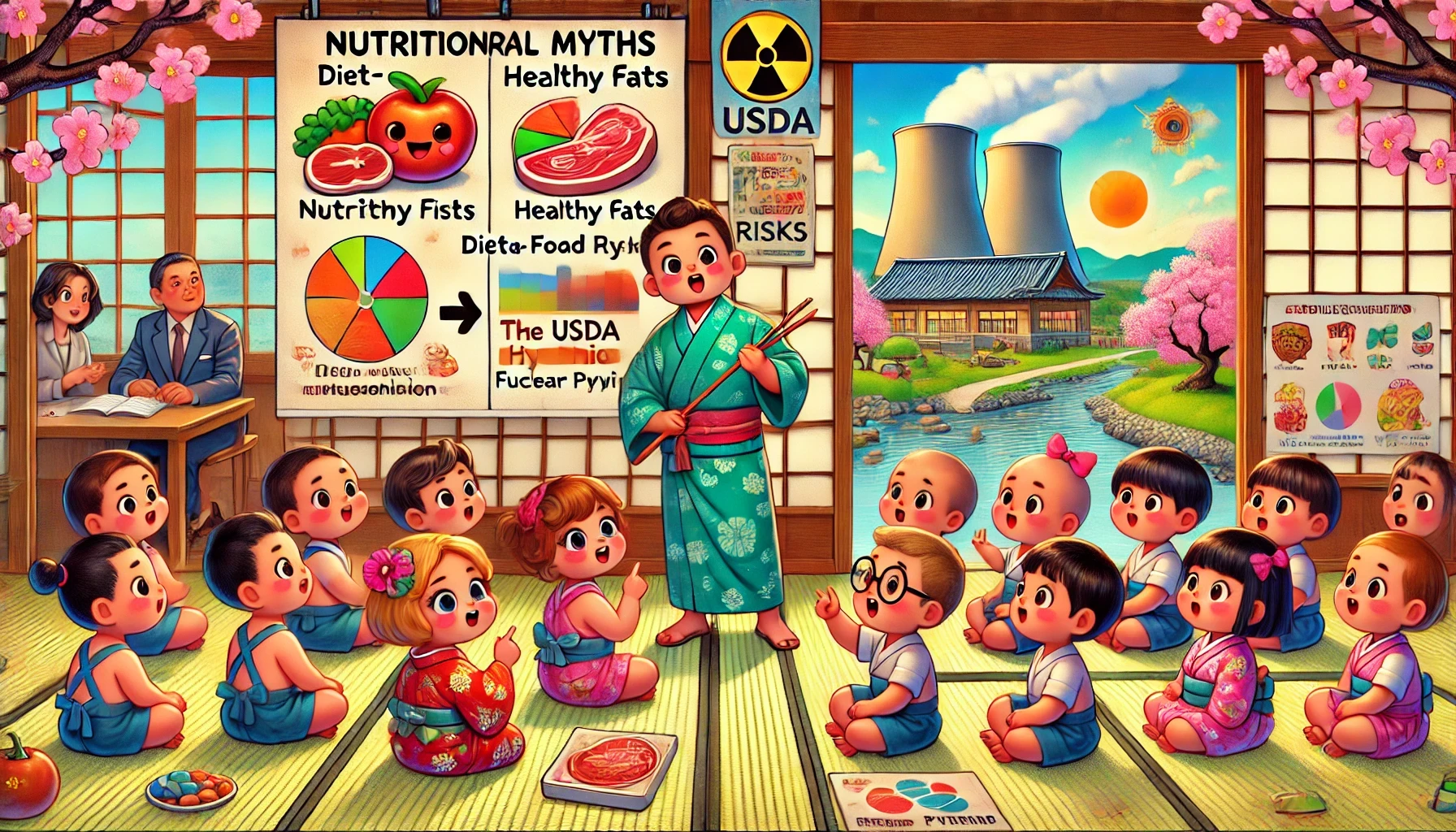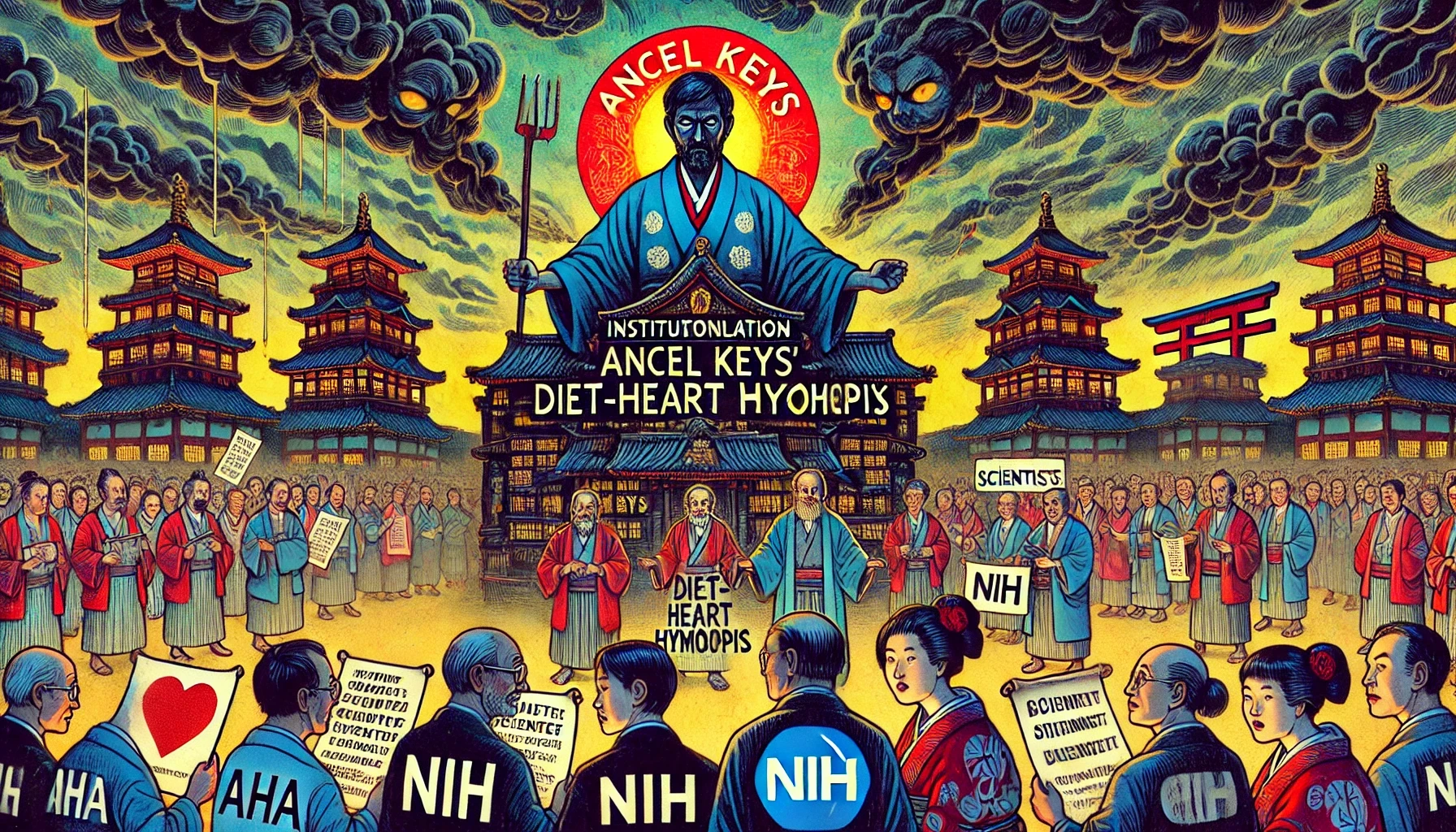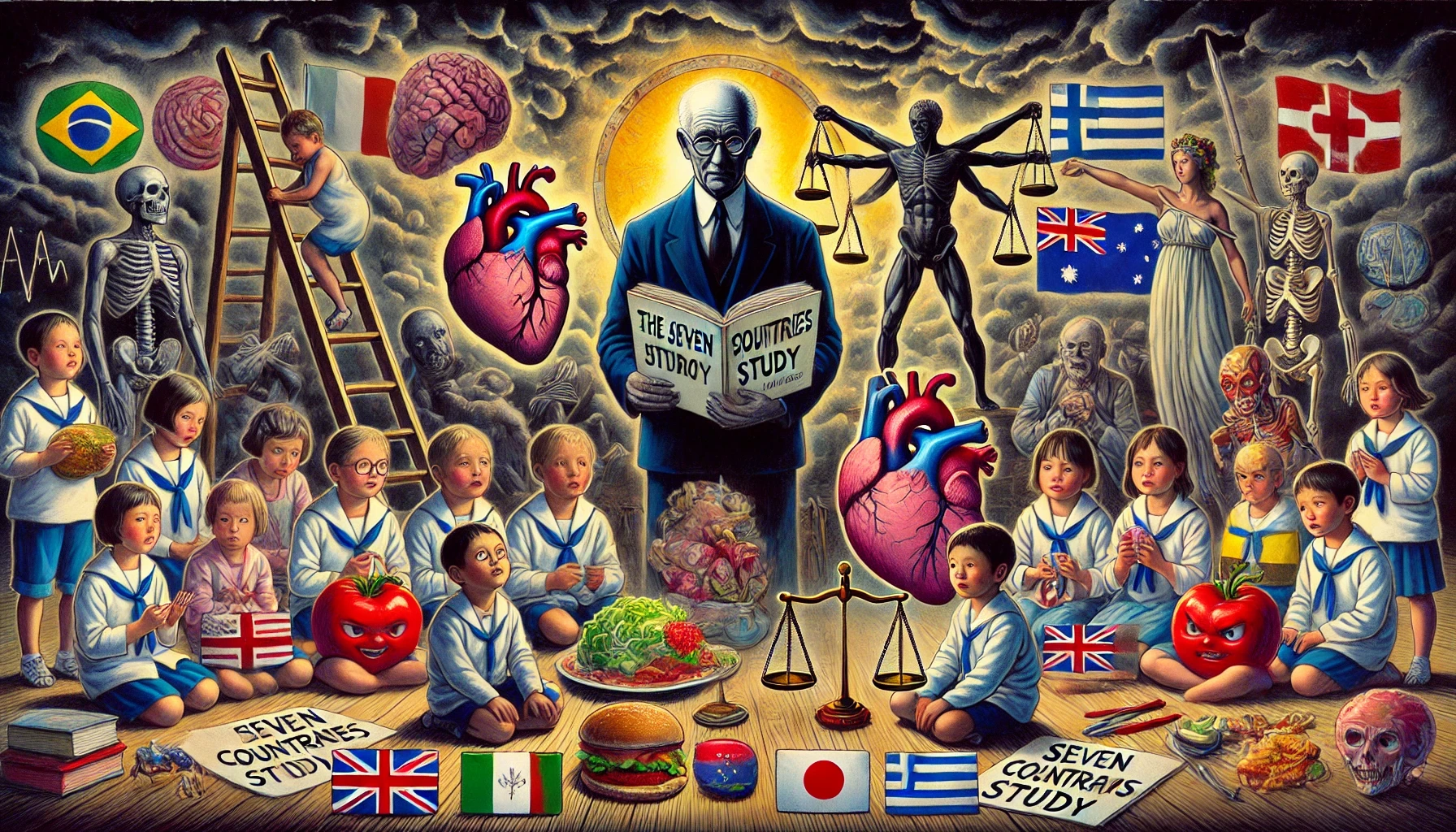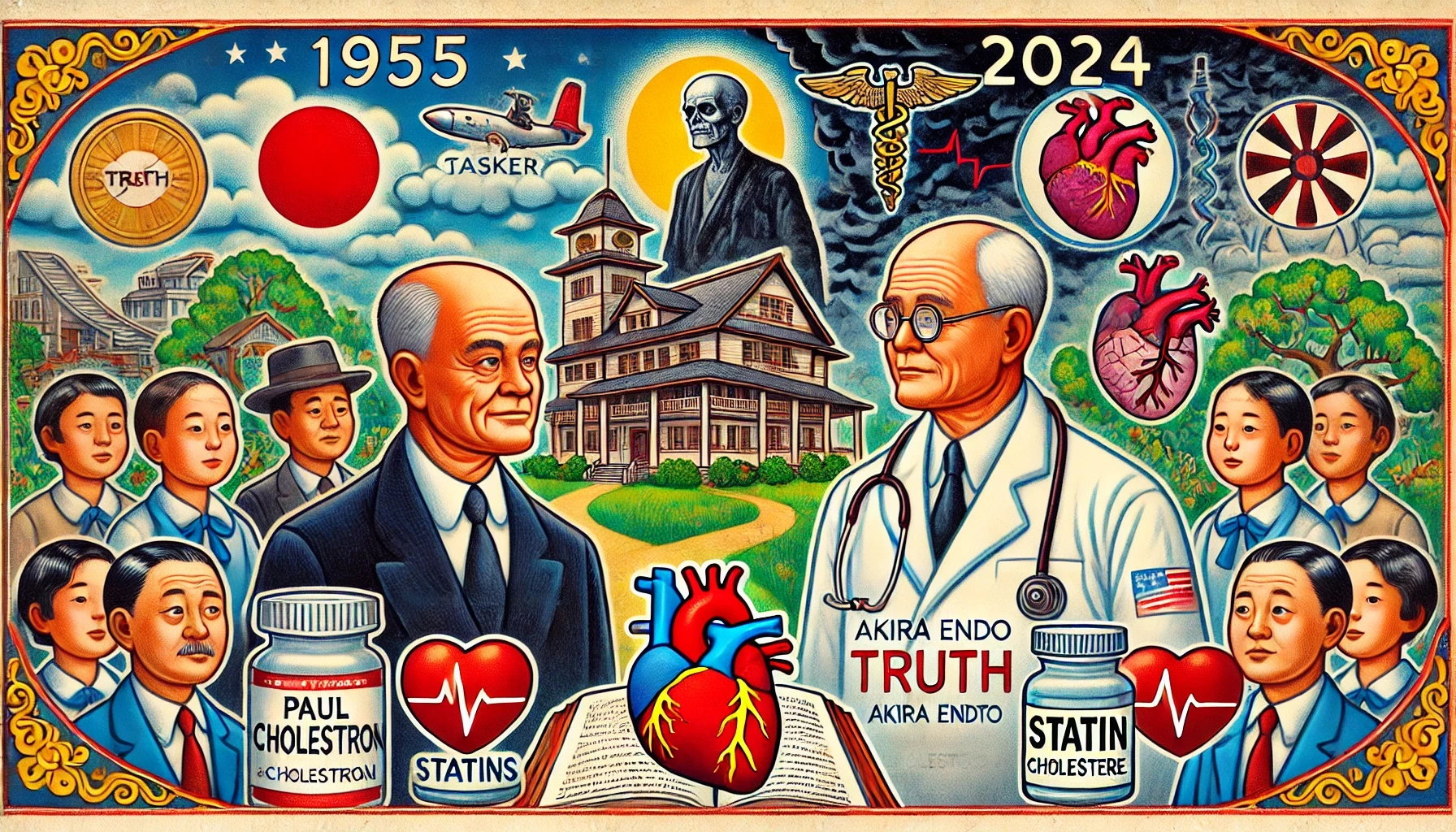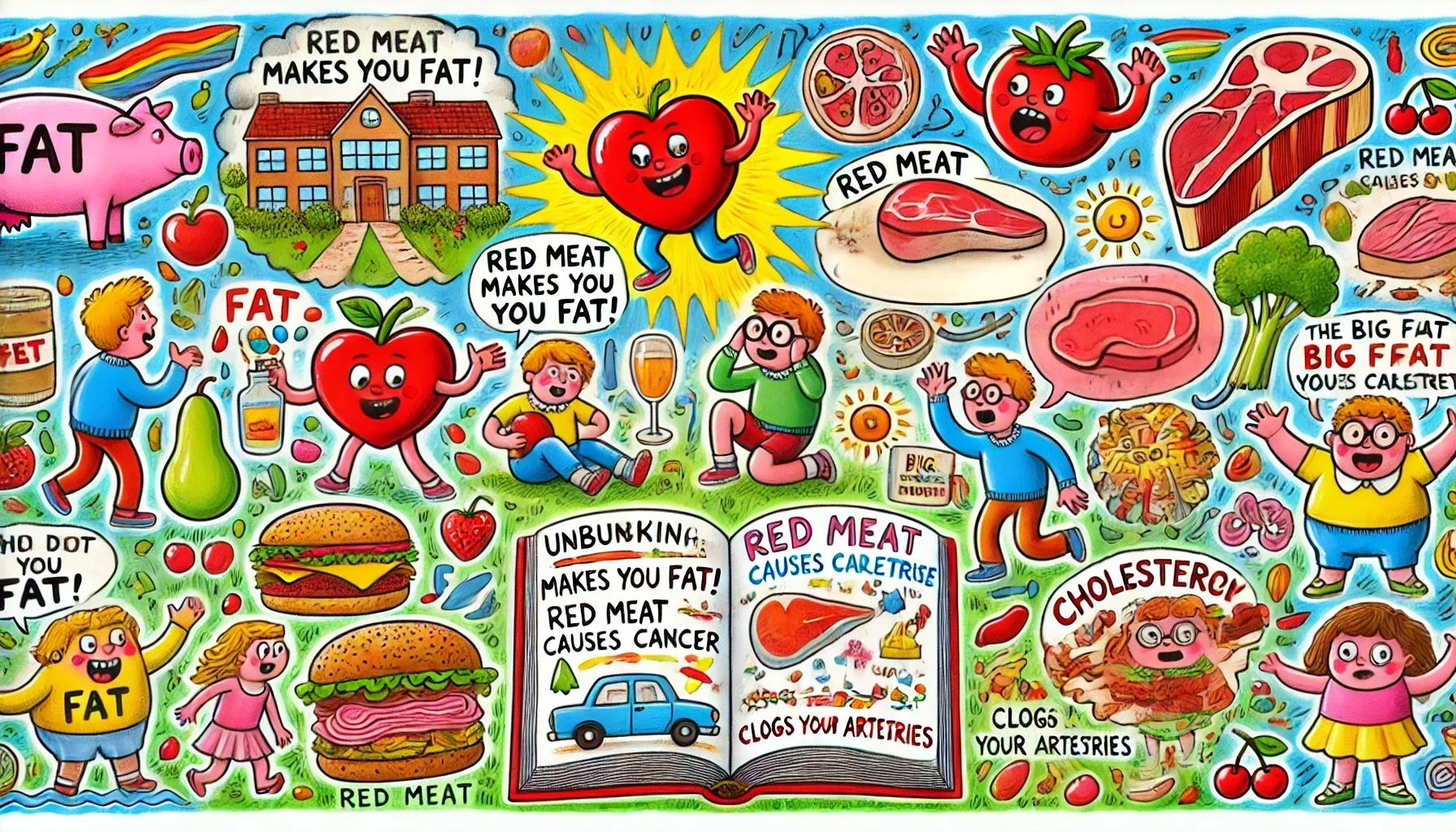ZENPTY.
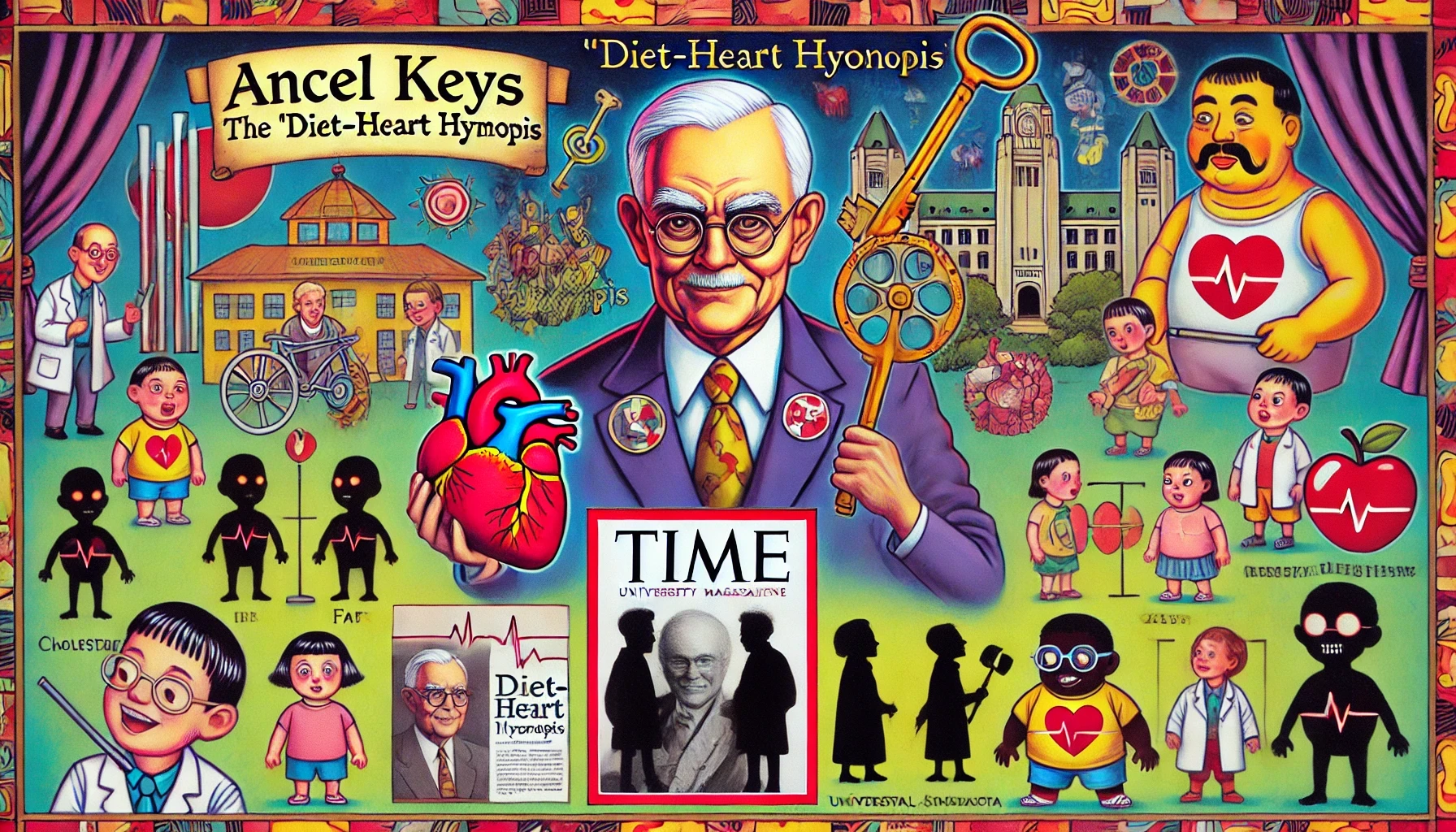
Unmasking the Villain: Ancel Keys and the War on Saturated Fat
Aug 19, 2024
While Akira Endo invented the billion-dollar cholesterol-lowering drug called statin, he never became a household name nor earned a single penny from it. In stark contrast, Ancel Benjamin Keys, a biologist and pathologist at the University of Minnesota, seized it all: money, power, and fame. Keys, the mastermind behind vilifying saturated fat, earned the nickname “Mr. Cholesterol” and was even featured on the cover of Time magazine. He became a shadow advisor to President Eisenhower’s personal doctor and managed vast sums of money for his research projects and governmental institutions. Dissenters to his ideas were silenced, either through personal attacks or by drying up their research funding. Let’s continue our discussion, as outlined in "The Big Fat Surprise," to understand how Ancel Keys gave birth to the notorious “diet-heart hypothesis,” erroneously linking saturated fat, cholesterol, and heart disease.
In the 1950s, the mainstream belief among heart disease researchers was that cholesterol caused heart disease. Although the direct causation between cholesterol and heart attacks had not been established, most scientists believed cholesterol was the culprit because it was the primary component of atherosclerotic plaque. This plaque buildup was thought to clog arteries, resulting in heart attacks.
One of the early ideas for lowering cholesterol was to consume less of it. This notion, introduced by two biochemists from Columbia University in 1937, assumed that avoiding egg yolks would prevent cholesterol accumulation in the body.
Ancel Keys himself first discredited this idea. In 1952, he initially stated there was “overwhelming evidence” for the theory but later found that feeding volunteers high-cholesterol diets did not change their blood cholesterol levels.
So, if foods high in cholesterol do not cause high serum cholesterol, what does?
At many labs, researchers were finding an association between fat and cholesterol. For example, researchers at the Institute for Metabolic Research in Oakland, California, discovered in 1952 that replacing animal fats with vegetable fats dramatically lowered total cholesterol. Harvard University researchers found that vegetarians who avoided dairy had lower serum cholesterol levels compared to those who consumed eggs and milk. Similar findings emerged from Dutch studies. Pete Ahrens at Rockefeller University found that saturated fats in butter and coconut oil raised serum cholesterol more than other fats, while diets rich in peanut, cottonseed, corn, and safflower oils resulted in the lowest cholesterol levels.
Keys was also racing to find a cure for heart attacks, but what set him apart was his ruthlessness. To gain power and fame, he obscured his lab findings and promoted his results as indisputable.
Keys conducted ethically questionable experiments on male schizophrenic patients at a Minnesota hospital, feeding them diets with varying fat content. He discovered that lower-fat diets slightly lowered cholesterol. These experiments were not definitive, involving only sixty-six people over two to nine weeks. Keys did not report details such as the number of men involved and the duration of each intervention. Despite this, Keys promoted these early results as if they were conclusive, stating, “No other variable in the mode of life besides the fat calories in the diet is known which shows anything like such a consistent relationship to the mortality rate from coronary or degenerative heart disease.”
Keys confidently drew a direct line of causation from dietary fat to serum cholesterol to heart disease. In a 1952 presentation at Mt. Sinai in New York, later published in several papers, Keys introduced his “diet-heart hypothesis.” His graph showed a close correlation between fat intake and death rates from heart disease in six countries, suggesting that eliminating dietary fat could nearly eliminate heart disease risk.
Keys was adept at gaining powerful allies and leveraging them to promote his interests. While his rivals toiled in academic labs, Keys traveled the world in the early 1950s, measuring locals’ cholesterol levels and assessing their diets. He persuaded Paul White, President Eisenhower’s personal doctor, to join him on international trips to measure fat and cholesterol. These trips likely influenced White to support Keys’s ideas.
White was not an ordinary cardiologist. He was one of the original observers of the heart disease epidemic, authored a classic 1931 textbook on the disease, and was one of six founders of the American Heart Association (AHA). He also worked with President Harry Truman to establish the National Heart Institute (NHI) as part of the National Institutes of Health (NIH) in 1948. As a renowned Harvard professor, White’s influence was immense.
This alliance paid off when President Dwight D. Eisenhower suffered his first heart attack on September 23, 1955. The day after, White held a press conference, advising the public to stop smoking, reduce stress, and cut down on saturated fat and cholesterol. This firmly established the belief that reducing dietary fat was essential for heart health.
Meanwhile, Keys promoted his data linking fat consumption to heart disease worldwide. However, he faced opposition. Jacob Yerushalmy objected that Keys selectively used data from six countries that fit his hypothesis. When Yerushalmy included data from all twenty-two countries, the correlation weakened. Keys dismissed this critique, claiming national statistics were unreliable, especially those collected by European governments post-WWII—a double standard, since he used the same data set. To silence critics, Keys launched the landmark “Seven Countries Study,” solidifying his hypothesis and marginalizing the idea that butter and meat could be part of a healthy lifestyle.
In the next article, we’ll explore how Keys defended his hypothesis through the "Seven Countries Study," the cornerstone of his success and the downfall of the idea that butter and meat can belong in a healthy diet.
Next: Ancel Keys and the Diet-Heart Hypothesis: A Deep Dive into Flawed Science
This is part 3 of the series on “The Big Fat Surprise.”
A Carnivore Journey: How Letting Go of Carbs Opened New Doors
Nutritional Myths and Nuclear Risks: The Parallel Stories of Regulatory Capture
Silencing Dissent: How Ancel Keys' Hypothesis Dominated Nutrition Science
Ancel Keys and the Diet-Heart Hypothesis: A Deep Dive into Flawed Science
From Eisenhower to Endo: The Evolution of Heart Health Myths
Red Meat, Cholesterol, and Fat: Challenging Conventional Wisdom


